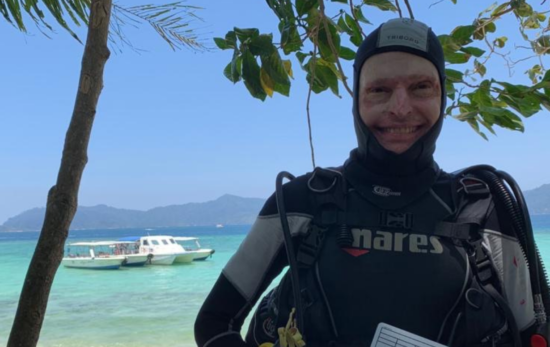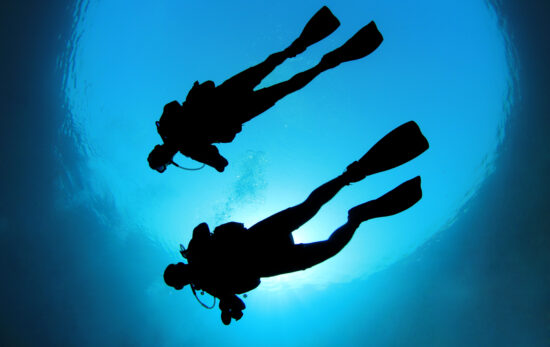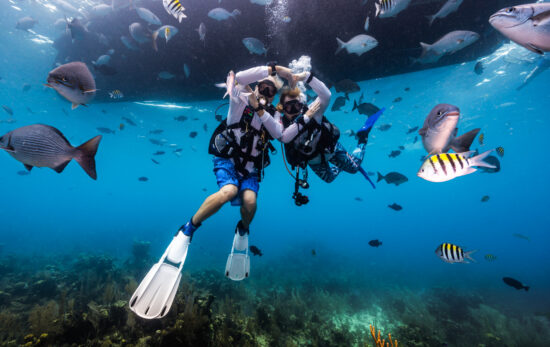In general, you would think that divers and people who spend a lot of time on boats rarely get seasick. And while this is probably true, plenty of divers have experienced seasickness while diving at some point. You never know when or if seasickness will hit you, and it can happen at any time. Personally, I experienced it for the first time on board a dive boat in Nusa Lembongan, Indonesia, during a particularly choppy day.
It was absolutely awful and ruined every minute I had to spend on the boat. I couldn’t enjoy the sunshine, the great food served onboard, nor the company of my fellow divers (which sucked, because diving is a great way to meet people). Luckily, seasickness passes quickly when you are in the water, so it didn’t ruin my dives (all though the dive master shared a story of having to hold someone’s regulator in whilst they were throwing up underwater!).
So, in order to help you if this should happen to you, I wanted to share a few things I learned about seasickness, and how to handle it when it affects you suddenly during a dive trip.
Tell the Crew Immediately
Honestly, I tried to play tough and avoid telling anyone how bad I felt. This was a rookie mistake, because as soon as I told the dive master on board she knew what to do.
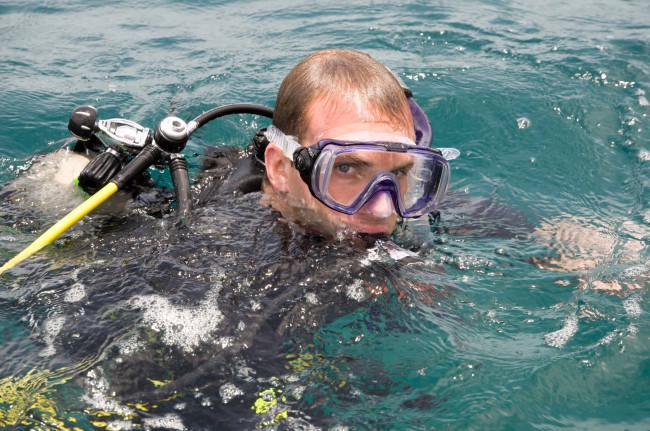
Get in the Water Whenever You Can
The dive master onboard my Nusa Lembongan dive boat was great, and she seemed to have had this happen to a few divers in the past. When I shared with her how queasy I was feeling, she looked me dead in the eye and ordered me to jump in the water. I looked at her confused, and she repeated the suggestion, quite firmly. I usually respond well to orders from those who know more than me, so instinctively I just flung myself overboard. She leaned over the railing of the boat once I was in the ocean and asked if that felt better. And it did. So, I spent the entire surface time in between dives hanging on to a rope on the side of the boat (which was anchored), feeling a lot better.
Keep Your Eye on the Horizon
This is an age-old advice for seasickness. If you cannot get in the water (for example if the boat is moving), focus your eyes on the horizon and your attention on your breath. Find a breathing pattern that feels relaxing and focus on nothing else than these two things (until you can either get back on land or jump in the water again).
Stay Clear of the Engine
Exhaust fumes make it worse. Just trust me on this.
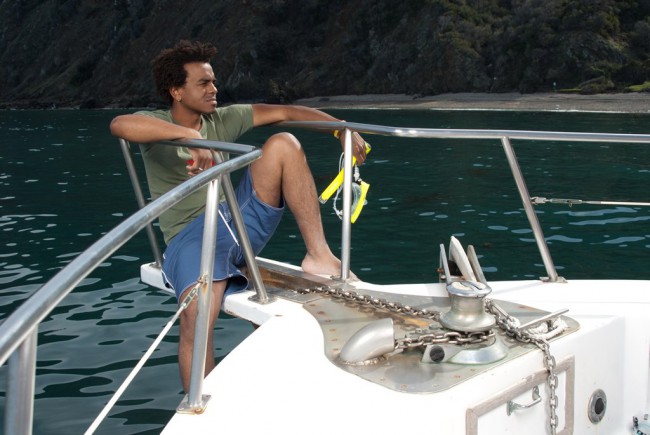
Stay Hydrated
It will be hard to keep anything down but do try to take small sips of water whenever you can. Hydrating your body will help it fight the nausea.
For more tips on combatting seasickness, visit the DAN Health & Diving library at DAN.org/Health.

